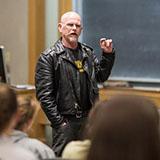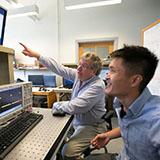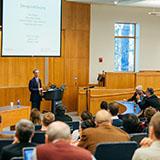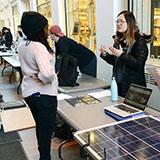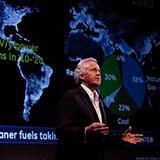Perfect Place for an Energy Institute
The executive director of the Arthur L. Irving Institute says Dartmouth—with its emphasis on the liberal arts—must be part of the global energy discussion.
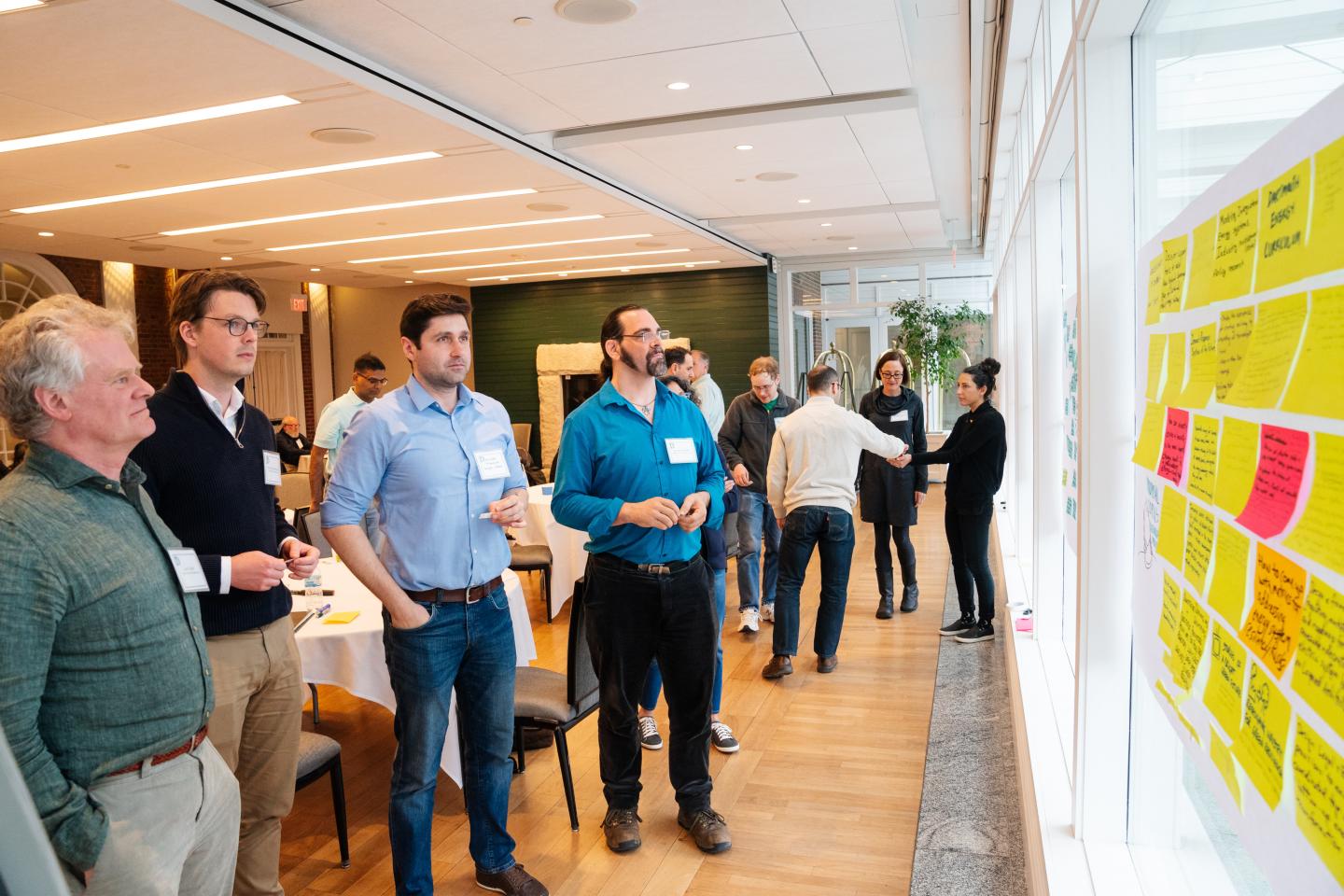
With a lead gift from the Arthur L. Irving family and Irving Oil, Dartmouth announced the creation of the Arthur L. Irving Institute for Energy and Society in 2016. The institute’s first executive director is Elizabeth Wilson, a leading scholar who works at the intersection of energy, technology, law, business, and policy. Wilson, who came to Dartmouth from the University of Minnesota’s Humphrey School of Public Affairs and holds the rank of professor of environmental studies, talks here about Dartmouth’s expertise in energy issues and how donors can support the institute’s mission.
Why an energy institute at Dartmouth?
Dartmouth is a perfect place for an energy and society institute, for three reasons. First, energy underlies all elements of our modern life, such as health care, transportation, and communications, and that means understanding systems from many different perspectives, which is a strength of the liberal arts. Second, these systems are facing new challenges and risks—from climate change and extreme weather events, as well as cybersecurity threats to our energy systems technologies. Third, I don’t think we have a choice. Energy is one of the critical issues facing the planet today, and our students see that. They’re really passionate about the topic because they understand how important it is for their futures on the planet.
What special expertise does Dartmouth bring to the energy discussion?
Dartmouth has always been an energy school, but we just haven’t called ourselves that. When you think of the first oil from Pennsylvania that was analyzed in our chemistry labs in the 1850s or look at the work of Donella and Dennis Meadows 20 years ago, you see that Dartmouth’s history in energy is part of our past and our future.
And we still have expertise today?
We have scholars like Lee Lynd, who’s an internationally renowned expert on biofuels, and Charlie Sullivan, who just landed a major National Science Foundation Industry Center grant focused on power system electronics.
And then we have faculty in disciplines all across campus who are interested in energy’s role in various aspects of our lives. This is a place where we can look at energy from many different angles like environmental studies, government, art history and geography and explore the implications of different energy system changes and challenges in integrated, interdisciplinary ways.
When you’re fully up and running, what will the institute’s structure be?
We won’t have our own faculty. Instead, we’re supporting faculty by regularly issuing requests for proposals (RFPs), which will encourage project teams comprised of faculty from different departments and schools to come together for specific projects. By focusing on emerging issues in the energy and society space and by having an RFP structure, we’re able to use our resources to respond to rapidly changing energy system needs.
How are students getting involved with the institute?
We’re focusing initially on educational opportunities taking place outside the classroom. We’re part of the Dartmouth Energy Collaborative, which includes the Sustainability Office, the Revers Center at Tuck, and colleagues at Thayer. We’re working with our partners to coordinate a mix of energy activities.
For example, with the Sustainability Office, we’ve been developing energy learning trips. Our first one took place in March, when several students traveled to West Virginia to study the legacy of coal. We’ve created the Energy 101 symposium series to engage students as well as faculty, staff, and community members in energy conversations and dialogues. And the collaborative is hosting a series of lunchtime energy presentations and discussions.
Looking ahead, what will the Arthur L. Irving Institute mean for our students?
We’ll explore and implement ways to bring energy issues into the classroom through many different disciplines, and we’ll help faculty create new courses. Then there are the ways students learn outside the classroom, which Dartmouth really encourages, such as internships and foreign study programs [FSPs]. We are working with the Russian and Government departments to develop an FSP in energy in Russia, stay tuned! With the Dartmouth Plan, students have an incredible opportunity to travel and to participate in energy internships, too.
Is there a role for alumni to make experiences like that possible?
Dartmouth alumni are a critical part of our energy story. We hope alumni will play a crucial role in helping us offer internships, bring speakers to campus, and enrich the entire learning experience for our students. Also, we would love to explore opportunities to support and engage with Dartmouth alumni who work in energy. We want to link the thousands of Dartmouth alumni who work across the energy space with students for mentoring, internships, and help in navigating future career opportunities in energy.
Can donors at all levels help advance the institute’s mission?
Absolutely! For example, we want to make sure all students can participate in our programs, and financial aid doesn’t cover every kind of expense. So, we’ve established a fund that will help students who want to participate in off-campus programs. In some instances, just a few hundred dollars makes the difference whether a student can participate in a trip or attend a conference.
What excites you the most after one year here at Dartmouth?
There’s so much potential. There are great opportunities for doing things in a way that allows new conversations to happen. We’re already creating some exciting programming that is engaging for students and really important for our entire community.
This is a place where we can look at energy from many different angles.
How else can you support the Arthur L. Irving Institute?
Explore these related giving opportunities:

